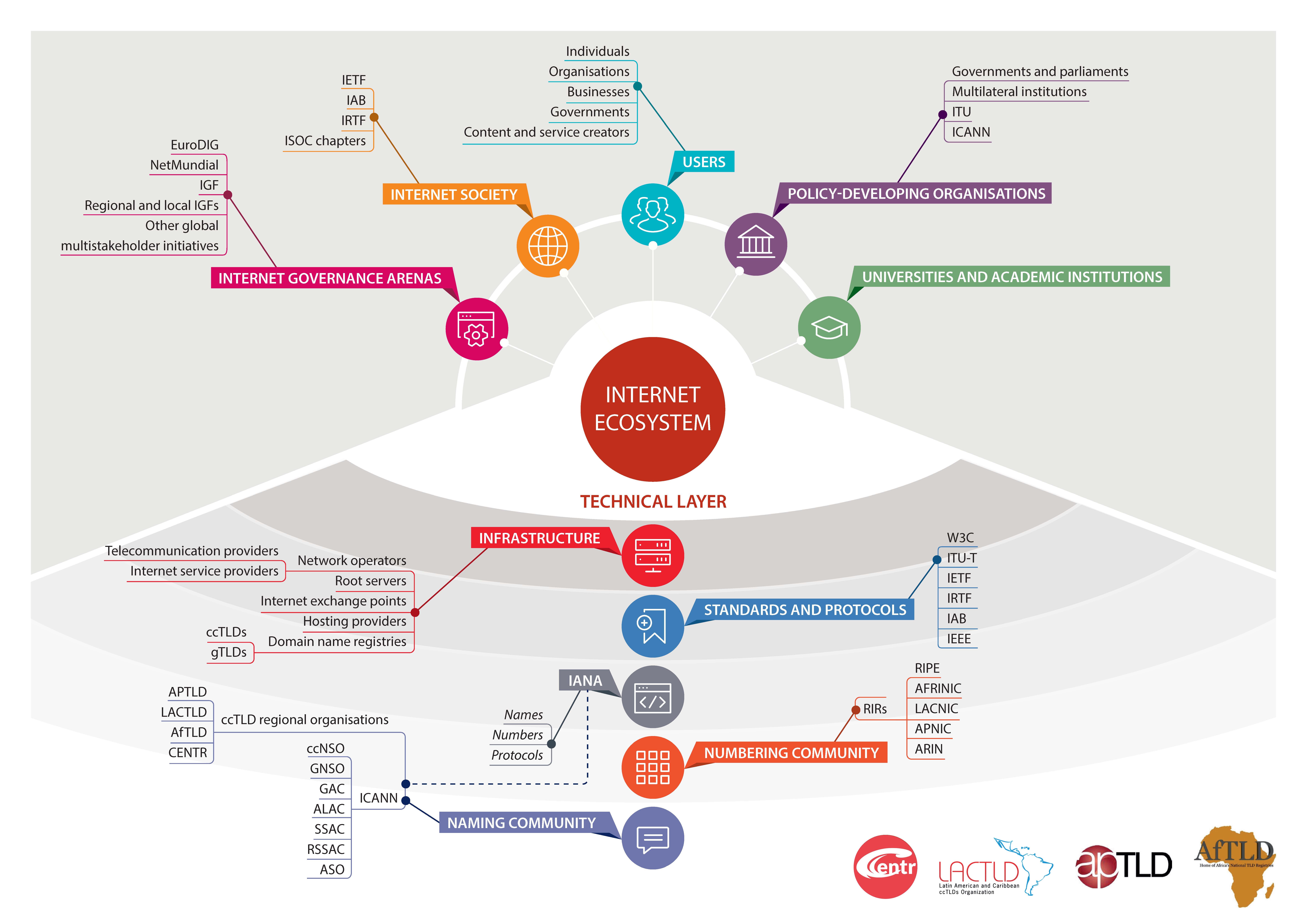By Peter Van Roste, CENTR General Manager – The main reason for CENTR’s relocation to Brussels – over a decade ago – was to allow the secretariat to engage more in policy discussions. And we have done so ever since. We’ve presented in the European Parliament, at the Commission and in countless meetings with stakeholders. Often, however, we experienced that an essential requirement for having a proper debate was missing: there was no common level of basic technical knowledge on how the Internet works and the role of the different actors.
In response, we have developed a training course on Internet basics. Over the last two years more than 200 people who are working on Internet-related policies have sat through the training and provided us with very encouraging and valuable feedback.
It was based on that feedback that we successfully applied for an innovatively formatted workshop at this year’s EuroDIG: a two-part session starting with a 40-minute blitz training on everything the audience needs to know about the Internet, DNS, IANA and blocking, and a second part that provided the perfect setting for an informed debate. While my assessment might be slightly biased, I do believe it is fair to say this was an all-round success. It is likely that the format might be recycled next year for even more EuroDIG sessions by the organisers.
Sessions like these have a dual purpose: they help people to understand how things work from a technical perspective but also allow them to understand the different roles of the stakeholders. One of the best moments of the training is when we see the pleasant surprise across the room when we wrap up by showing we explained on a very practical level the role of most of the stakeholders in the impressive technical layer of the ‘Internet ecosystem” map.
These trainings take a lot of time to prepare – they are tailor-made for each audience – but I truly believe providing them is an essential function for organisations like CENTR. We are in a position – importantly from a non-profit perspective – to provide neutral technical information for an informed policy debate. I also believe it is the duty of the technical operators of the Internet to keep on providing that sort of training. New people are starting in policy roles every day and in particular at a time where technical solutions are considered by some to be the key to unlock some societal and political issues, we want them to be as informed as possible.
Thanks again to everyone who contributes to our educational work, in particular Peter Koch (DENIC), Peter Janssen (EURid) and Ronald Geens (DNS Belgium)!




